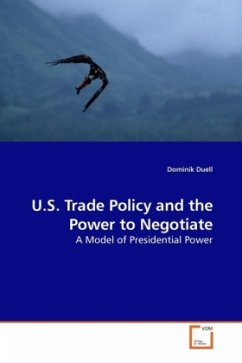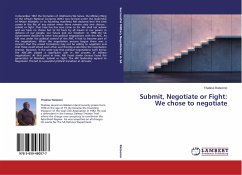Separation of power and the system of checks and balances create a situation of shared authority over decision making by different branches of government within the political system of the United States. By taking into account the political tools available to the U.S. President, I argue that U.S. Congress has a hard time to secure its stance in making political decisions in areas impacted by domestic as well as international concerns. By referring to the case of trade policy, I show that the President is more powerful than Congress within the legislative bargaining framework by using his constitutional veto power, outside by employing strategic pre-action in form of agenda setting and unilateral action, and internationally through his power to negotiate. U.S. Presidents of the last six decades had the power to influence the political struggle in such a way that their most preferred policy outcome, usually a liberal trade agenda, was achieved.







